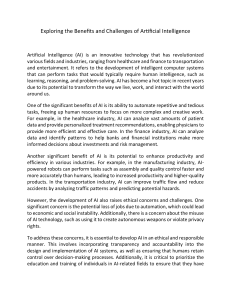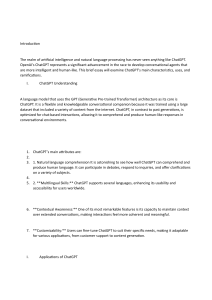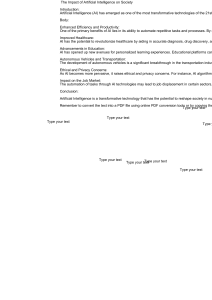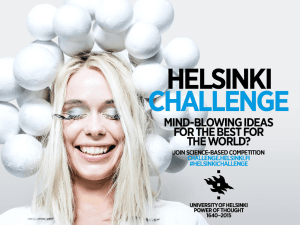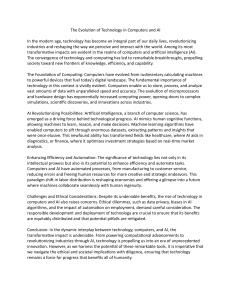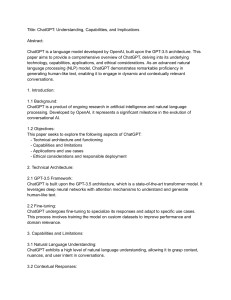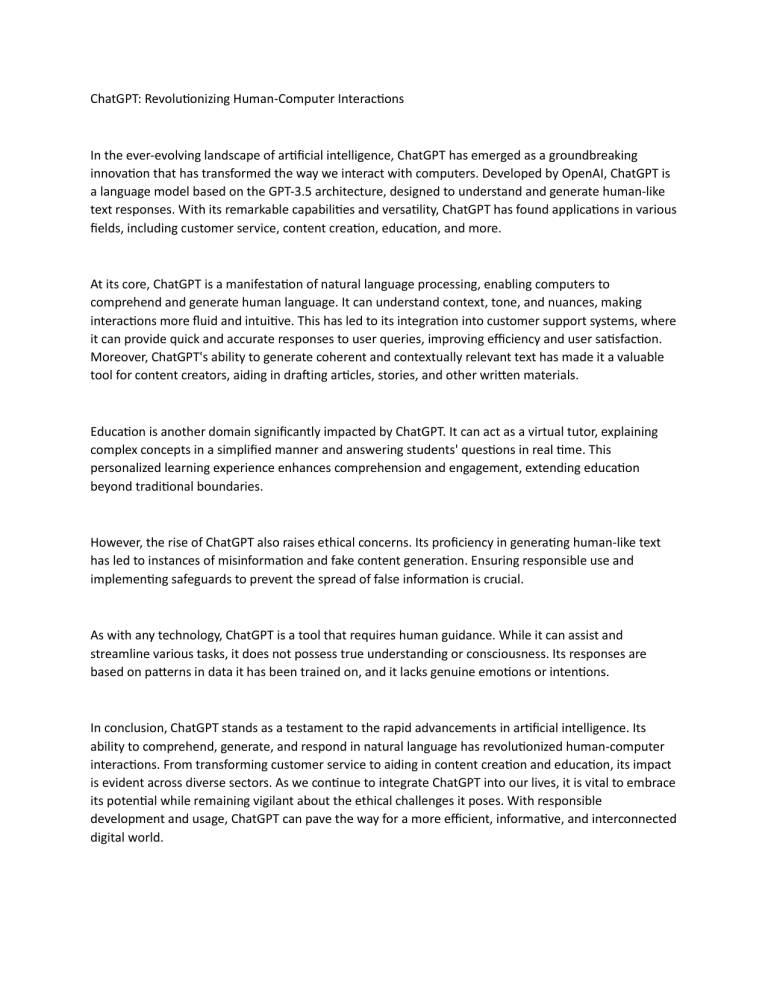
ChatGPT: Revolutionizing Human-Computer Interactions In the ever-evolving landscape of artificial intelligence, ChatGPT has emerged as a groundbreaking innovation that has transformed the way we interact with computers. Developed by OpenAI, ChatGPT is a language model based on the GPT-3.5 architecture, designed to understand and generate human-like text responses. With its remarkable capabilities and versatility, ChatGPT has found applications in various fields, including customer service, content creation, education, and more. At its core, ChatGPT is a manifestation of natural language processing, enabling computers to comprehend and generate human language. It can understand context, tone, and nuances, making interactions more fluid and intuitive. This has led to its integration into customer support systems, where it can provide quick and accurate responses to user queries, improving efficiency and user satisfaction. Moreover, ChatGPT's ability to generate coherent and contextually relevant text has made it a valuable tool for content creators, aiding in drafting articles, stories, and other written materials. Education is another domain significantly impacted by ChatGPT. It can act as a virtual tutor, explaining complex concepts in a simplified manner and answering students' questions in real time. This personalized learning experience enhances comprehension and engagement, extending education beyond traditional boundaries. However, the rise of ChatGPT also raises ethical concerns. Its proficiency in generating human-like text has led to instances of misinformation and fake content generation. Ensuring responsible use and implementing safeguards to prevent the spread of false information is crucial. As with any technology, ChatGPT is a tool that requires human guidance. While it can assist and streamline various tasks, it does not possess true understanding or consciousness. Its responses are based on patterns in data it has been trained on, and it lacks genuine emotions or intentions. In conclusion, ChatGPT stands as a testament to the rapid advancements in artificial intelligence. Its ability to comprehend, generate, and respond in natural language has revolutionized human-computer interactions. From transforming customer service to aiding in content creation and education, its impact is evident across diverse sectors. As we continue to integrate ChatGPT into our lives, it is vital to embrace its potential while remaining vigilant about the ethical challenges it poses. With responsible development and usage, ChatGPT can pave the way for a more efficient, informative, and interconnected digital world.


